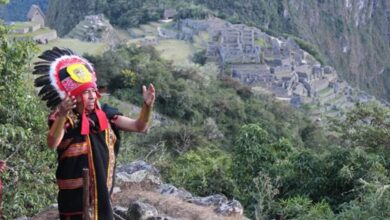The new governments of Chile and Colombia are part of a progressivism that tries to continue the socialism of the 21st century, but not repeat the authoritarian drifts of some of those governments

Photos: TW-petrogustavo, TW-gabrielboric
LatinAmerican Post | Santiago Gómez Hernández
Listen to this article
Leer en español: Petro y Boric: una izquierda latinoamericana diferente al Socialismo del siglo XXI
The governments of Gustavo Petro in Colombia and Gabriel Boric in Chile seem to represent a new left in Latin America. This, in a region framed by authoritarian governments, undemocratic regimes and a conservative left. The new left that has just arrived in these two countries has new challenges.
The unusual closeness shown by the new presidents of Colombia and Chile is no coincidence. Both political projects have particularities different from any other leftist government in the region and show that their intention is to distance themselves from other governments (sometimes unsuccessfully).
Both Boric and Petro share a vision of modern progressivism, close to feminism and environmentalism. A model far removed from the socialism of Nicolás Maduro or Pedro Castillo, in which they use conservative values close to the Catholic Church and environmental exploitation as a method of generating wealth.
Both leaders tried to exploit these differences to the maximum in their presidential campaign or before coming to power. Faced with the risk of always being compared to undemocratic governments such as those of Venezuela, Nicaragua or Cuba, the two leaders were emphatic in crossing out the anti-democratic forms of these countries.
Read also: Bukele Proposes a European Union in Central America
Boric, when he was barely a deputy, called on the Chilean and Latin American left to abandon double standards with non-democratic governments such as those of Venezuela, Cuba, and Nicaragua.
Even as president, in an interview with BBC Mundo, Boric said in January that “Venezuela is an experience that has rather failed and the main demonstration of its failure is the six million Venezuelans in diaspora." He also disqualified the government in Nicaragua. For his part, Petro repeated on several occasions that there is no democracy in Venezuela.
The Colombian president even communicated on his Twitter : “I suggest Maduro stop his insults. Cowards are those who do not embrace Democracy. Get Venezuela out of oil, take it to the deepest democracy, if you have to step aside, do it.” This, before the claim of his Venezuelan counterpart to leftist leaders, such as Boric, Petro and Pedro Castillo, for reiterating that they would stay away from the Venezuelan dictatorship.
Petro even dealt a heavy blow to the intentions of the most recalcitrant Chavismo by announcing that his government will not extradite persecuted politicians or refugees from Venezuela who live in Colombia. This, a clear response to the request of the Chavista leader, Diosdado Cabello.
Critics
Despite trying to differentiate themselves from these other traditional socialist movements and parties, it does not mean that they consider them enemies. On the contrary, they still understand that they are close governments and in which they will not find hostility.
The biggest problem will be judging where the red lines will mark. Both Petro and Boric criticized the Government of Venezuela, Nicaragua and Cuba and classified them as a dictatorship. However, they will not intend to block relations with these countries either. Even the Colombian president himself maintained the normalization of diplomatic relations with Venezuela as a campaign proposal.
However, criticism is never lacking, and today they are criticized for a possible soft position or close to other leftist leaders who are also questioned for different reasons. In the first measure, Gustavo Petro himself signed, together with Alberto Fernández (Argentina), Luis Arce (Bolivia) and Andrés Manuel López Obrador (Mexico), a letter in support of Argentine Vice President Cristina Fernández de Kirchner. The former president today faces an investigation for corruption that could leave her out of political life. Critics of this letter consider that it is an intrusion into Argentine justice by foreign governments.
On the other hand, the Petro government has also been criticized for its failure to attend the vote to condemn Nicaragua in the OAS for the latest cases of human rights violations. This has clearly caused rejection positions within the opposition in Colombia, since they see it as a strategy of support for the Daniel Ortega regime in Nicaragua.
Boric, in the same interview for the BBC, assured that his intention is to achieve a new axis of the left. This will be close to Petro in Colombia, Luis Arce in Bolivia and, possibly, Lula in Brazil. If the charismatic former Brazilian president becomes president again, it is clear that this new Latin American left can propose a new project, far from the dictatorships of 21st century socialism, more progressive and environmentalist.





